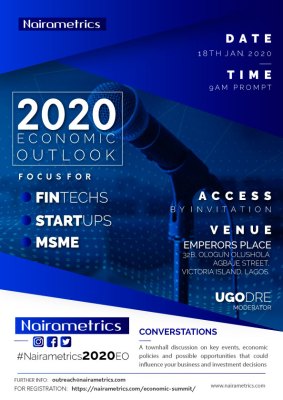More than a few eyebrows were raised when Netflix revealed during the week, that competitors could be responsible for the relatively flat curve in profit in its Q2 results.
In its letter to shareholders, Netflix admitted that competitors such as Apple, Amazon, Disney, NBCUniversal and WarnerMedia were not giving them easy access to the market share, but assured that the streaming service had its strategy, and could improve its content faster than its peers.
It also admitted that social media could pose a different kind of threat, particularly TikTok, which is growing at an unprecedented rate and showing how flexible internet entertainment could become.
The facts
Netflix’s paid membership numbers grew from 182.856 million at the end of March 2020, to 193 million at the end of June 2020 – a growth of about 10.1 million, much more than the 7.5 million that the company predicted in April.
This however did not reflect in the profit accordingly, as the company recorded $720 million profit on revenue of $6.1 billion in Q2 as against $709 million profit on $5.8 billion revenue in Q1, 2020.
There were assumptions that people would continue to turn to Netflix for entertainment as they remained locked down at home, but these brands are now proving to Netflix that they are also in the race for the numbers all the way.
Amazon’s Prime Video
Prime Video, is an American Internet video on demand service that is developed, owned, and operated by Amazon.
Similar to Netflix’s mode of operations, Prime Video secures rights to original content. Forbes reports that even though Netflix has more subscribers than Amazon’s Prime Video, Prime has three times as many movies in its archives.
Netflix has about 3,781 total movies while Amazon Prime has about 12,828 movies. The billions of dollars that Netflix has invested in purchasing original content appear to have been dwarfed by its rival.
Weighing the options
Reviewers adjudged both brands as going toe to toe on various fronts, releasing new exclusive videos every week.
However, Netflix offers its services at the most expensive rate. Amazon Prime Video offers its monthly premium subscription at $8.99, while Netflix offers its premium subscription at $12.99. Other brands in the space offer at even lower rates. For instance, Apple offers its subscription for $4.99, and Disney’s monthly subscription sells for $6.99.
Though Apple and Disney are not considered major threats to Netflix, it is clear that if the battle for market share comes down to prices, Netflix could lose out, especially in the African region where poverty is higher, and income per capita is lower.
Growth seems promising for the region, especially since Netflix now streams its local content. Netflix has so far streamed several Nigerian movies, unlike any of the other two.
However, apart from price, Netflix has set the pace for the others. According to a Forbes review, a close look at Prime Video’s thousands of movies would reveal a lot of “extremely low-budget shows, including some that look to be home-made” although there are also thousands of quality originals on the platform, much more than the entire videos on Netflix.
Their survey also shows that in giving value for every dollar paid, Prime Video is still ahead due to cheaper costs and more movies in its archives.
Every dollar of subscription gives you access to 247 shows and 1,427 movies on Prime Video, 149 shows and 291 movies on Netflix, 34 shows and 88 movies on Disney, 146 shows and 116 movies on the recently launched HBO Max, and 4 shows and 1 video on Apple TV.
For video quality, however, it’s a tussle between Netflix and Prime Video. Also, Netflix is the only one of the lot to have made an official entry into Nigeria and other African countries; experts predict that Europe, Middle East and Africa region will soon account for more than a third of Netflix’s total subscriber base.
However, the Q2 results have shown that growth in subscriber numbers may not necessarily translate into growth in profits. Due to the fact that Netflix hardly ever discusses subscriber figures in a specific country (aside from the US and Canada), there are a whole host of estimates available as regards the exact subscriber figures from country to country.
However, Europe, Middle East and Africa have seen a significant increase; from making up 25% of the 118.9 million subscribers in Q1 2018, the region now accounts for almost a third of the 193 million paid subscriptions.
What is with TikTok?
TikTok is a Chinese video-sharing social networking service owned by ByteDance. Though launched in the Chinese market since 2016, the network gained unrivaled popularity in 2020 as it soon became a quick remedy to boredom. It is used to create short dance, lip-sync, comedy and talent videos, making its audience into “prosumers”, that is producers and consumers of its content.
Unlike Netflix and Amazon Prime, TikTok does not spend millions of dollars in purchasing originals and exclusives, but allows users to become creators. Experts argue that it is this added level of engagement – where the user becomes producer and director – that has given TikTok an edge in the race for internet entertainment.
A cut in the Nigerian market
From over 200 million Nigerians, none of these streaming platforms have staked a clear 10 percent, and over 90% of the Nigerian populace is still unclaimed.
Beyond marketing strategies and promotions, the battle will come down to content as it is said that “content is king.” That platform that succeeds in giving Nigerians what they want might just have the day.
In quantity, TikTok is bound to be ahead since it is a community publishing platform where the users can create multiple content daily.
When it comes to the kind of local quality that will win the heart of Nigerians, I daresay that Netflix is ahead of the game.
Lasisi Elenu’s “Mama and Papa Godspower” comedy will soon be launched as a Netflix series, and if Lasisi’s views on Youtube and Instagram will be a determining factor, hundreds of thousands of loyal fans might just join the Netflix family.
There is also the recently signed deal with Mo Abudu’s EbonyLife to bring a series-adaptation of Lola Shoneyin’s “The Secret Lives of Baba Segi’s Wives” and a film-adaptation of Prof. Wole Soyinka’s “Death And The King’s Horseman” to screen.
Both shows, exclusive to Netflix, can well be described as the ‘mother of all local content’, not only set in Nigeria, but portraying depths of the Nigerian culture and history that the other platforms lack.
Eventually, it may or may not be a game of numbers, but this league promises to be an interesting one to watch.









